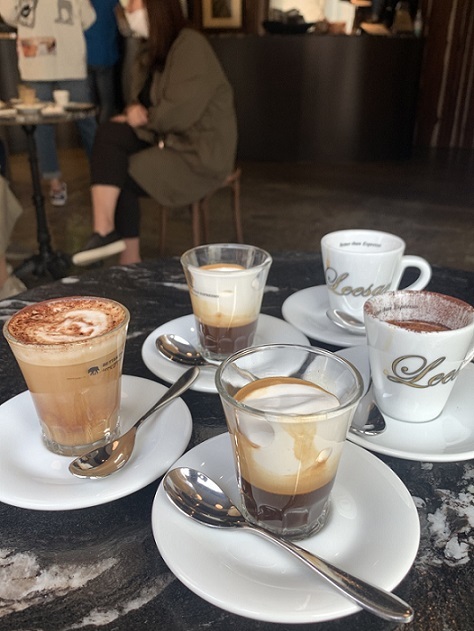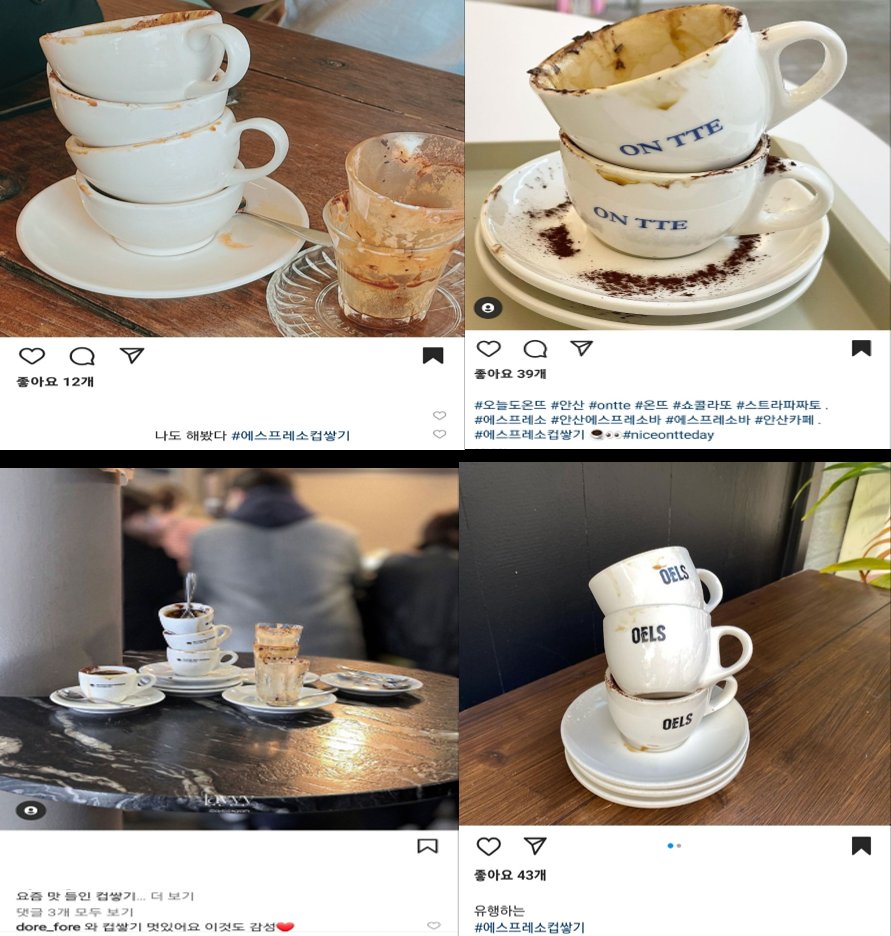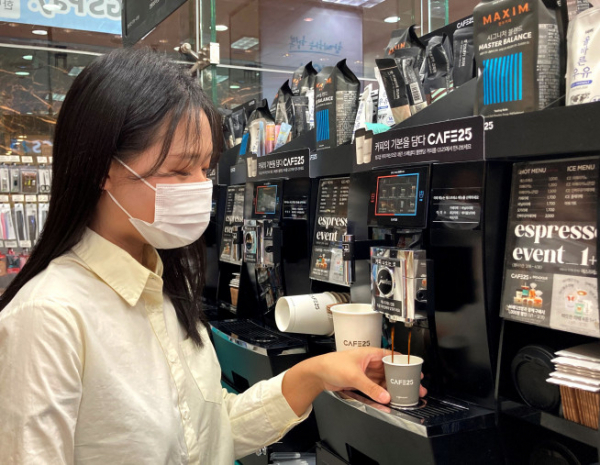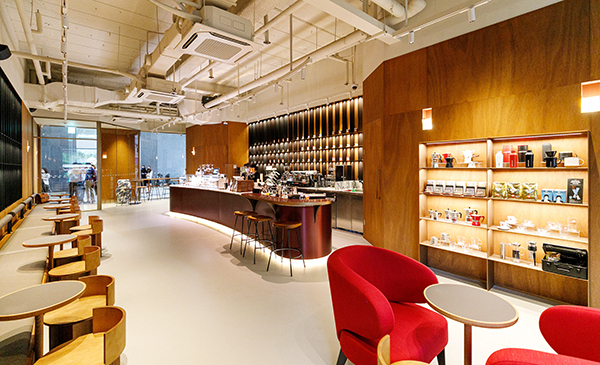Booming Napoli-style espresso nudges Americano
Intense flavor, exotic cafe design attracts virus-battered Koreans opting for new taste experience
By Choi Jae-heePublished : May 2, 2022 - 11:28

Around 11:00 a.m. Thursday at a coffee bar in Seoul’s Cheongdam-dong, a bunch of caffeine lovers took a few sips of their coffee served in tiny white cups.
Aside from the smaller servings, the place had another key difference from the many coffee joints that can be found in streets of Seoul. Many of its customers were indulging in their coffee standing because about half of the tables were standing tables with no chairs.
The unique cafe is part of a new addition to South Korea’s coffee scene -- “espresso bars” that serve coffee like they do in Italy.
Although a few have existed for years, more than 70 espresso bars have newly opened in Seoul alone in the last three years, according to industry sources.
Not only in the capital area, but also in Jeju and Busan, espresso bars are emerging as hot spots for coffee lovers.
“It is this smooth and bold flavor of expresso coffee that wakes me up in the morning. It’s refreshing to be surrounded by a strong aroma of roasted coffee beans,” said Yang So-ri, a 31-year-old office worker in Apgujeong-dong.
Originated in Milan, Italy, sometime between the late 1800s and the early 1900s, espresso, which means “fast” or “express” in English, is a highly concentrated, bittersweet coffee made when hot water is forced through finely ground coffee beans.
As the name suggests, Italians have it fast. In a coffee culture that is unique to the country, people step into a bar which serves alcoholic drinks in the evening, gulf down a cup of espresso at the counter and go. This could take just a few minutes.
The growing popularity of Neapolitan-inspired espresso bars in Korea reflects a changing trend in coffee consumption among Koreans, who are used to the taste of an Americano, a shot of espresso with hot water poured over the top.
Besides the espresso‘s strong aroma and intense flavor, the interior of local espresso parlors that resemble Italian bars, characterized by wooden window frames and chairs, green lawns and outdoor tables, attract many coffee lovers looking for an Instagrammable experience.
For espresso novices, most shops offer a range of toppings for their expresso drinks from cocoa powder, cinnamon to whipped cream.
On Instagram, one can easily find a host of pictures and short videos with the hashtag #espressocupstacking in Korean, featuring a pile of petite espresso cups.

“Espresso bars not only offer a new taste experience but also compensation for enduring overseas travel restrictions,” said Jeong Hyun-joo, a senior official at local coffee business consultant First Coffee Lab.
The relatively cheap price of espresso coffee, hovering at between 2,000-3,000 won ($1.59-$2.40) per cup, is another key attraction, considering that a 12-ounce Americano at franchise coffee brands like A Twosome Place and Starbucks costs more than 4,000 won.
Some said the fast-paced culture of Italian-style coffee is a perfect match for Korea‘s’ “Ppalli Ppalli (hurry, hurry)” culture.
“Espresso drinks are basically served quickly and customers spend less than an hour at espresso bars which usually don’t have many tables to sit at. So, even though the bar is crowded during lunchtime, customers don’t really have to wait long either to order or get their drinks, which is important to short-tempered Koreans,” said Song, who runs an espresso bar in Mangwon-dong.

Big retail companies and food giants are riding on the espresso boom.
In late March, GS25 installed espresso machines at more than 13,000 of its convenience stores across the nation, while offering tiny disposable paper cups for espresso extracts.

Meanwhile, Cafe Pascucci, the street cafe brand run by a leading food company SPC Group, launched an espresso bar on the first floor of the group’s headquarters in Yangjae-dong, Seoul, in September last year.
By Choi Jae-hee (cjh@heraldcorp.com)












![[Today’s K-pop] BTS pop-up event to come to Seoul](http://res.heraldm.com/phpwas/restmb_idxmake.php?idx=644&simg=/content/image/2024/04/17/20240417050734_0.jpg&u=)





![[KH Explains] Hyundai's full hybrid edge to pay off amid slow transition to pure EVs](http://res.heraldm.com/phpwas/restmb_idxmake.php?idx=652&simg=/content/image/2024/04/18/20240418050645_0.jpg&u=20240419100350)

![[Today’s K-pop] Zico drops snippet of collaboration with Jennie](http://res.heraldm.com/phpwas/restmb_idxmake.php?idx=642&simg=/content/image/2024/04/18/20240418050702_0.jpg&u=)